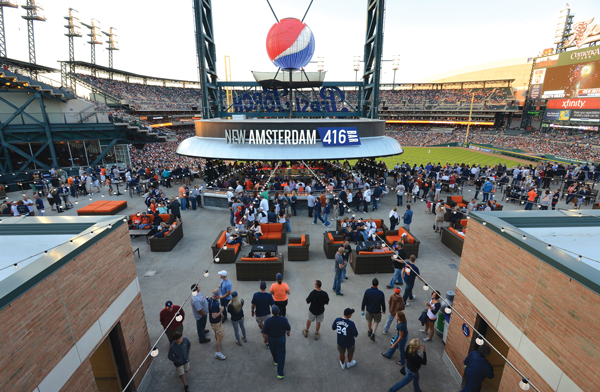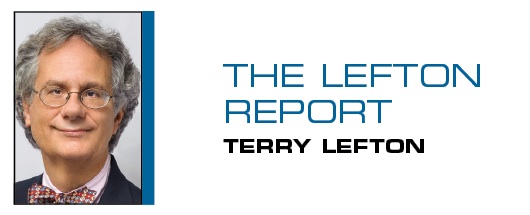For the first time in two decades, Major League Baseball will open its season without
Pepsi as a corporate sponsor. Sources said that while Pepsi-owned
Gatorade — at 27 years MLB’s second-most-tenured corporate patron — is remaining in the fold, the broad-based carbonated and salty-snacks deal is disappearing like the four-pitch intentional walk.
Pepsi still has an MLBPA deal and recently did a spring training photo shoot for point-of-sale and other local marketing executions with around a dozen MLB players, including Addison Russell, Gary Sanchez and Francisco Lindor. Rights with local MLB teams allow Pepsi to use those players locally.
With the Los Angeles Angels moving from Pepsi to Coke in the offseason, the MLB scoreboard now reads Coke 18, Pepsi 11. The Oakland A’s have a deal with Zevia, a local “all-natural” carbonated soft drink brand.
A pricey deal signed last year by Pepsi with the NBA, along with its hefty NFL rights deal, were certainly two factors weighing heavily on the decision.
An MLB spokesman said league marketers were still having “meaningful talks” with Coke and noted “we could split the category.” Sources tell us that having long been frustrated by the inability to do anything digitally or socially with its many MLB team sponsorships, there is some appetite from Coke for a deal that would allow it to work those increasingly vital marketing platforms.
“It seems like it’s late,” said one involved marketer, “but remember that you can turn around digital and social so much quicker than traditional media.”
 |
Pepsi is out at MLB but has deals with 11 teams, including Detroit.
Photo by: GETTY IMAGES
|
> JOHN HANCOCK SIGNING: Hoping to drive home its message of early retirement planning the way David Ortiz used to drive home runs in clutch situations, Boston-based John Hancock has signed the former Red Sox star to an endorsement deal just in time for the upcoming MLB season. A shoot backing a multimedia campaign from ad agency Hill Holiday is expected before the end of March.
Hancock already has a sponsorship and a prominent sign atop the outfield scoreboard at Fenway Park. The financial services giant was a heavy national spender in sports under former CEO David D’Alessandro in the 1990s and 2000s, with inventory including national MLB sponsorship rights and a global Olympics deal. The regional appeal of Ortiz aside, a leading question is whether this is indicative of a return to sports marketing by Hancock.
Rob Friedman, head of sponsorship and event marketing, negotiated the deal for the insurer. Alex Radetsky’s Radegen Sports Management, New York, is the longtime marketing agent for Ortiz.
> NAME GAME, COLLEGE VERSION: The University of Maryland has quietly issued an RFP to sell naming rights for its on-campus football and lacrosse stadium, and nearby Cole Field House, which is being converted to an indoor football practice facility.
The 52,000-seat stadium, which opened in 1950, was called Byrd Stadium until 2015, after former University President Charles Byrd (1936-54) when the name was removed because of his segregationist views. The facility was rechristened “Maryland Stadium.” Chevy Chase Bank bought field naming rights in 2006; the name changed to “Capital One Field at Maryland Stadium,” after Capital One acquired Chevy Chase Bank in 2009. However, sources said that name will be coming off the facility soon, “so it will be a clean venue.”
Complicating matters somewhat is that Maryland’s on-campus basketball arena also has a naming-rights deal: It opened as the Comcast Center in 2002 but has been called the Xfinity Center since 2014.
The university is seeking a deal between 10 and 20 years. Naming-rights experts said the facility could get between $2 million and $3 million a year but cautioned that the market is getting increasingly cluttered with arenas and stadia seeking retrofitted names. In the D.C. market alone, Verizon Center’s name is available for around $9 million a year in a deal that would include rights to the 20-year-old arena’s NBA, NHL, WNBA and AFL teams. Offering some hope is that Audi paid a reported $4 million annually for naming rights to D.C. United’s new $300 million stadium.
Outfront Media sells most commercial inventory for Maryland athletics, but it is not involved in the RFP, sources said.
Terry Lefton can be reached at tlefton@sportsbusinessjournal.com.





